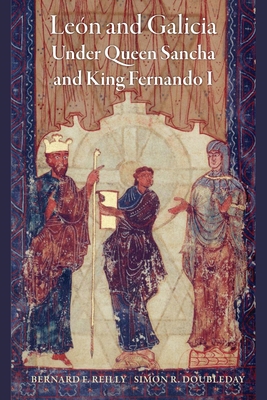León and Galicia Under Queen Sancha and King Fernando I

León and Galicia Under Queen Sancha and King Fernando I
A corrective to conventional accounts of the reign of Queen Sancha and King Fernando I in medieval Iberia Acclaimed historians Bernard F. Reilly and Simon R. Doubleday tell the story of the reign of Queen Sancha and King Fernando I, who together ruled the territories of León and Galicia between 1038 and 1065--often regarded as a period in which Christian kings and their vassals asserted themselves more successfully in the face of external rivals, both Viking and Muslim. The reality was more complex. The Iberian Peninsula remained a space of multiple, intertwined forms of power and surprisingly nuanced relationships between--and among--the diverse configurations of Christian and Muslim authority. Some of these complexities would be obscured by later generations of medieval chroniclers, whose narratives focused on the singular authority of the king and expressed a more binary view of interreligious relations. Through their account of the key events and turning points of Sancha and Fernando's reign, Reilly and Doubleday propose a re
PRP: 570.92 Lei
Acesta este Prețul Recomandat de Producător. Prețul de vânzare al produsului este afișat mai jos.
513.83Lei
513.83Lei
570.92 LeiLivrare in 2-4 saptamani
Descrierea produsului
A corrective to conventional accounts of the reign of Queen Sancha and King Fernando I in medieval Iberia Acclaimed historians Bernard F. Reilly and Simon R. Doubleday tell the story of the reign of Queen Sancha and King Fernando I, who together ruled the territories of León and Galicia between 1038 and 1065--often regarded as a period in which Christian kings and their vassals asserted themselves more successfully in the face of external rivals, both Viking and Muslim. The reality was more complex. The Iberian Peninsula remained a space of multiple, intertwined forms of power and surprisingly nuanced relationships between--and among--the diverse configurations of Christian and Muslim authority. Some of these complexities would be obscured by later generations of medieval chroniclers, whose narratives focused on the singular authority of the king and expressed a more binary view of interreligious relations. Through their account of the key events and turning points of Sancha and Fernando's reign, Reilly and Doubleday propose a re
Detaliile produsului










